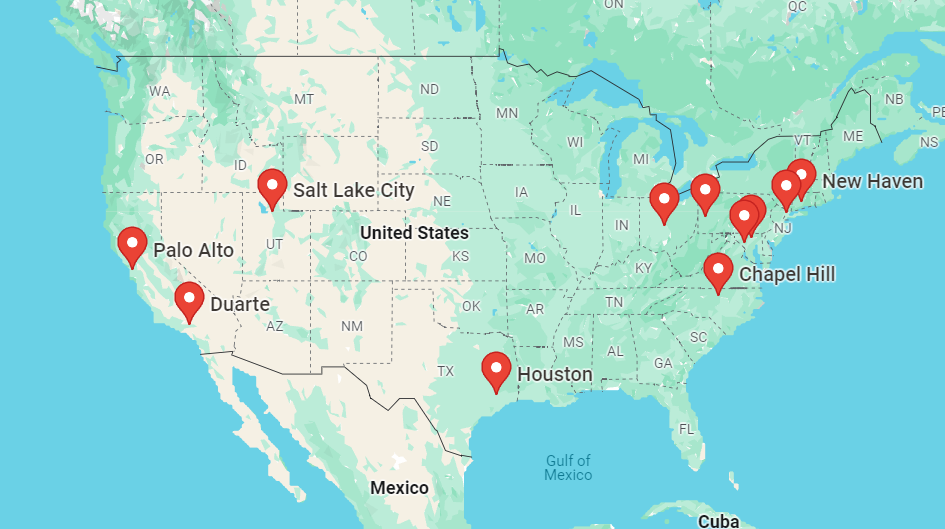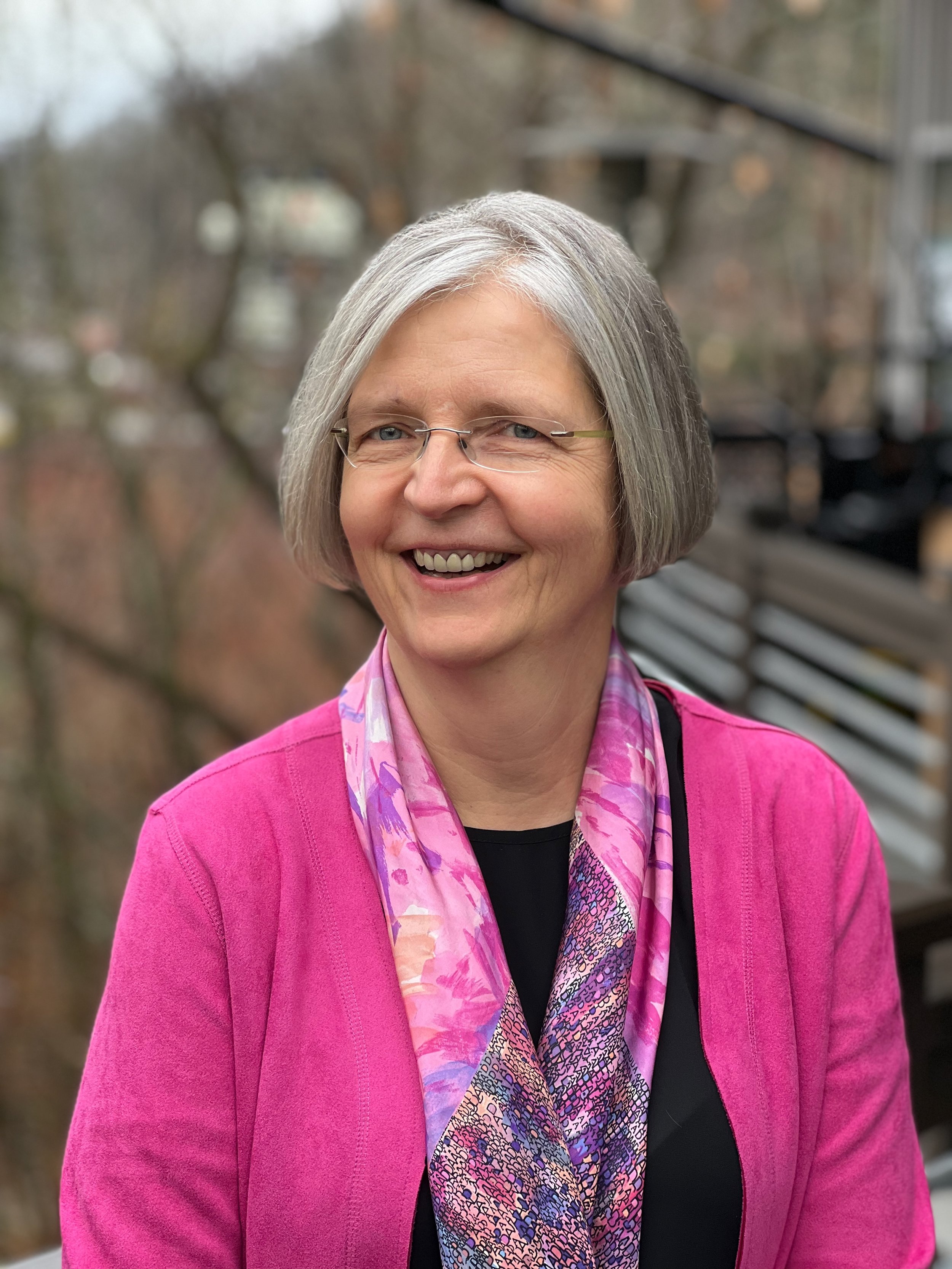Tissue Donation - You can help advance MBC research
Even though breast cancer research is comparatively well-funded, researchers still don't fully understand the many different ways metastatic cancer eventually evades currently available treatments. Just like a detective can learn much from studying the scene of a crime, researchers need to understand how breast cancer causes death to better understand how to stop it from doing so. One of the quickest ways for them to do that is through something called a tissue donation program.
Many of us are familiar with organ donation programs, but as metastatic patients, we are no longer eligible to donate our organs to another person. We can, however, donate tissue while we're still alive and tissues, including organs, soon after we die to aid thousands of future patients by helping researchers better understand the process of metastasis. Understanding the way cancer evades current treatments is key to developing more effective and more targeted treatments that let us live longer (and with a better quality of life) with the hope that one day we can stop MBC from prematurely ending our lives.
To learn more about tissue donation programs and why they are so essential to scientific discoveries, we talk with patient advocates, Stephanie Walker and Christine Hodgdon, along with breast cancer researcher Dr. Steffi Oesterreich and clinical coordinator Lori Miller about the topic of tissue donation in general and the specific program they're all involved with called Hope for Others at the University of Pittsburgh.
Episode Notes:
To Learn More About Tissue Donation Programs
Hope for Others (University of Pittsburgh): About us
Contact information for U.S-based Tissue Donation Programs for MBC (as of April 2024)
Stanford University, Palo Alto, California, USA
Contact: leigh32@stanford.edu
The Legacy Project Rapid Autopsy Program, City of Hope Comprehensive Cancer Center, Duarte, California, USA
Email Contact: ebarragan@coh.org
Legacy to Life Rapid Autopsy and Tissue Donation Program, University of Utah Huntsman Cancer Institute, Salt Lake City, Utah, USA
Contact: lisa.gauchay@hci.utah.edu
The Final Gift Program, University of Texas MD Anderson Cancer Center, Houston, Texas, USA
Contact: rldittmar@mdanderson.org
Ohio State University Comprehensive Cancer Center, Columbus, Ohio, USA
Contact: Sameek.Roychowdhury@osumc.edu
Hope for OTHERS Tissue Donation Program, University of Pittsburgh, University of Pittsburgh Medical Center (UPMC), Hillman Cancer Center, & Magee Womens Research Institute, Pittsburgh, Pennsylvania, USA
Contact: HopeforOTHERS@pitt.edu
UNC Breast Tumor Donation Program, University of North Carolina (UNC) Lineberger Comprehensive Cancer Center, Chapel Hill, North Carolina, USA
Contact: paige_stem@med.unc.edu
National Cancer Institute (NCI) Location: Bethesda, Maryland, USA
Contacts: linda.sciuto@nih.gov, anish.thomas@nih.gov
Johns Hopkins University Location: Baltimore, Maryland, USA
Contact: ResearchAutopsyProgram@jhmi.edu
Weill Cornell Medicine/NewYork-Presbyterian Location: New York, New York, USA
Contacts: ipminfo@med.cornell.edu, jmm9018@med.cornell.edu
Yale Pathology’s Legacy Tissue Donation Program, Yale University, New Haven, Connecticut, USA
Contacts: harold.sanchez@yale.edu, marcello.distasio@yale.edu
Popular Press Articles
How a New Kind of Autopsy Is Helping in the Fight Against Cancer (Time, 2018)
In a ‘rapid autopsy’ study, UCLA researchers identify lethal molecular alterations after present-day therapies fail patients with metastatic melanoma (UCLA Health, 2023, article is about metastatic melanoma, but provides good summary of the uses of rapid autopsy to understand metastasis)
Opening the door on rapid autopsy (Cure Magazine, 2023)
Rapid autopsies could speed cancer research. They’re also fraught for families (STAT news, 2016)
How a Rapid Autopsy Program Is Fueling Research Progress in MS (Cleveland Clinic, 2016) (about discoveries for MS, but useful for general information)
To Learn More About the Legacy of Advocate Leigh Pate
Examples of MBC Discoveries Resulting from Tissue Donation Research
Bacon, E.R., Ihle, K., Guo, W. et al.(2024) Tumor heterogeneity and clinically invisible micrometastases in metastatic breast cancer—a call for enhanced surveillance strategies. npj Precis. Onc. 8, 81 3
Avigdor, B. E., Cimino-Mathews, A., DeMarzo, A. M., Hicks, J. L., Shin, J., Sukumar, S., Fetting, J., Argani, P., Park, B. H., & Wheelan, S. J. (2017). Mutational profiles of breast cancer metastases from a rapid autopsy series reveal multiple evolutionary trajectories. JCI insight, 2(24), e96896.
Huang, X., Qiao, Y., Brady, S.W. et al.(2021) Novel temporal and spatial patterns of metastatic colonization from breast cancer rapid-autopsy tumor biopsies. Genome Med 13, 170.
Juric, D., Castel, P., Griffith, M. et al. (2015) Convergent loss of PTEN leads to clinical resistance to a PI(3)Kα inhibitor. Nature 518, 240–244.
Scientific Articles & Commentaries on Rapid Autopsy / Tissue Donation Programs:
Geukens, T., De Schepper, M., Van Den Bogaert, W. et al.(2024) Rapid autopsies to enhance metastatic research: the UPTIDER post-mortem tissue donation program. npj Breast Cancer 10, 31.
Guekeins T., Maetens M, Hooper J., et al. (2024), Research autopsy programmes in oncology: shared experience from 14 centres across the world. J. Pathol..
Hooper J. E. (2021). Rapid Autopsy Programs and Research Support: The Pre– and Post–COVID-19 Environments. Ajsp, 26(2), 100–107.
Duregon E, Schneider J, DeMarzo AM, Hooper JE.(2019) Rapid research autopsy is a stealthy but growing contributor to cancer research. Cancer. 2019 Sep 1;125(17):2915-2919.
Dankner, M., Issa-Chergui, B., & Bouganim, N. (2020). Post-mortem tissue donation programs as platforms to accelerate cancer research. The journal of pathology. Clinical research, 6(3), 163–170.
Duregon, E., Schneider, J., DeMarzo, A. M., & Hooper, J. E. (2019). Rapid research autopsy is a stealthy but growing contributor to cancer research. Cancer, 125(17), 2915–2919.
Bacon, E.R., Ihle, K., Lee, P.P. et al. (2020) Building a rapid autopsy program – a step-by-step logistics guide. transl med commun 5, 23.
Meet the Guests of the Episode
Christine Hodgdon
Christine Hodgdon was a conservation biologist before her metastatic breast cancer diagnosis in April 2015. Christine co-founded GRASP - Guiding Researchers & Advocates to Scientific Partnerships which empowers patients, clinicians, and researchers to exchange ideas and learn from each other. She spearheads the MBC Alliance-sponsored Breast Cancer Brain Metastasis (BCBM) Initiative: Marina Kaplan Project with the goal to address the unmet research needs of breast cancer patients living with central nervous system (CNS) metastasis and was a founding committee member of MBCBrainMets.org, a resource hub for breast cancer patients living with brain metastasis. She also collaborates with leadership at Johns Hopkins Sidney Kimmel Comprehensive Cancer Center to innovate the INSPIRE (Influencing Science through Patient-Informed Research & Education) Advocacy Program. Christine is very proud to be a patient advisor on the rapid autopsy tissue donation program, Hope for OTHERS (Our Tissue Helping Enhance Research & Science) at the University of Pittsburgh Medical Center (UPMC) Magee Womens Hospital. Hope for OTHERS offers patients the opportunity to leave a legacy by making contributions that will advance research discoveries and help future patients.
You can find her on X (Twitter): @christeeny513
Lori Miller, B.S.
Lori is was a research technician for 25 years (1980 - 2005) with the University of Pittburgh’s Chairman of Biochemistry, Klaus Hofmann. They were successful in isolating insulin receptor from human placentas. It was a huge discovery which made Lori fall in love with research.
She then worked in transplant research, taking part in a gene therapy for arthritis research program in the 90s. Lori left the research field for 10 years, then returned to the University of Pittsburgh in 2016 as the biobanker, and now Clinical Coordinator for the Lee/Oesterreich lab. Although her previous research was cutting edge in exciting fields at the time, she feels they can’t hold a candle to the rapid autopsy program.
Allowing patients to have the opportunity to leave their legacy in the world of breast cancer research is the most meaningful thing Lori feels she’s done in her career. Just as each patient is unique, so is each autopsy - in her words, “Every single one matters!!”. She is thankful for each and every patient willing to contribute to research.
Stephanie Walker
Living with De Novo metastatic breast cancer since July 2015, Stephanie is a retired RN with close to 40 years experience in pediatric and adult critical care, as well as emergency department experience in critical access size hospitals to Level 1 trauma centers. Her last 14 years in nursing was spent in hospice/end of life care.
After being diagnosed with MBC in 2018, Stephanie began to volunteer with many different breast cancer organizations. She is an independent advocate with the Metastatic Breast Cancer Alliance and the project lead of the BECOME (Black Experience of Clinical Trials and Opportunities for Meaningful Engagement) initiative. She was also instrumental in the planning and participation in the Black Wo(men) Speak Symposium held in conjunction with SABCS 2022.
She is also a Living Beyond Breast Cancer Hear My Voice graduate, as well as a helpline volunteer. She is also a Project Lead grad of 2022. She is the Co-Chair of the working group that focuses on removing barriers to standard of care and quality of life.
Stephanie will answer any questions, even the hard ones regarding her own mental health. She isn’t defined by her cancer and wants others to be their own light to shine bright. She is married with adult children & grandchildren, and lives with husband John and rescue dog Rex in eastern North Carolina.
Steffi Oesterreich, Ph.D.
Dr. Oesterreich is Professor of Pharmacology and Chemical Biology, Co- Leader of the Cancer Biology Program at UPMC Hillman Cancer Center (HCC), and Co-Director of the Women’s Cancer Research Center at Magee Women’s Research Institute and HCC. Her research focuses on progression of estrogen receptor positive breast cancer. Specific areas of interest include endocrine resistance, metastases, and invasive lobular carcinoma (ILC). Dr. Oesterreich has published more than 200 articles, her work has been continuously supported by the National Cancer Institute, CDMRP, BCRF, Susan G Komen and a number of other foundations. She is a Komen Scholar, and serves on the Scientific Advisory Board for BCRF. She enjoys working in multi-disciplinary teams, is interested in involvement of advocates in research, and is committed to mentoring the next generation of breast cancer researchers.





